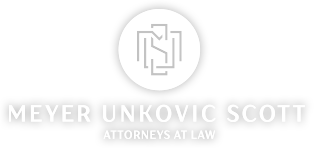 During these final days before Election Day, it is difficult to go an hour without being reminded of the presidential race and every other local, state and congressional campaign. From social media to your neighbor’s front lawn, it seems as if everyone is talking politics – except, possibly, your co-workers.
During these final days before Election Day, it is difficult to go an hour without being reminded of the presidential race and every other local, state and congressional campaign. From social media to your neighbor’s front lawn, it seems as if everyone is talking politics – except, possibly, your co-workers.
Many businesses, in the same vein of prohibitions against workplace sexual harassment, bullying and other inappropriate comments, have policies that ban political conversations and activities. It is understandable why management would want to keep an office or factory free of this type of discourse, as it carries the potential to create discord and arguments among employees.
During a particularly divisive period in American politics, it’s possible business leaders have already had to remind staffers to keep quiet when it comes to the election. Importantly, and despite what a particularly political employee may argue, the First Amendment does not have free rein in the workplace. Freedom of speech – which includes the freedom to talk politics – only means the government cannot abridge speech. Some states do protect political speech in the workplace, at least to some extent, but it varies.
However, although an employer can create policies to curb political discussions, there are limits to what can be banned. With our politically charged climate likely to last beyond the election, all businesses should understand the distinction.
Employees’ Rights
A common misconception by employers is that the National Labor Relations Act (NLRA) does not apply to non-union businesses and employees. Apart from some specific exclusions, most private employees are protected by the NLRA. Those protections include the right to engage in “concerted activity,” or when an employee(s) takes action for mutual aid or protection regarding terms and conditions of employment.
In the context of political speech and activities in the workplace, that means if a certain conversation has a nexus related to work, it may be protected by the NLRA. For example, if an employee says they are supporting Candidate A because he or she will raise the minimum wage, and a co-worker says they prefer Candidate B’s policies because they will deregulate the business’s industry, this conversation is related to their work and is potentially protected. One of the few ways an employer may be able to ban work-related political discussions is if they were causing a disruption or perhaps if someone was bullying a co-worker about their political opinion. A ban on all non-work-related conversations may also be implemented.
Conversely, if an employee is proclaiming Candidate A should win the election because they will cut federal spending or implement other measures unrelated to the business’s industry, an employer is likely allowed to shut down the conversation, provided the business has a policy banning political and/or non-work-related conversations. The same concept applies to the display of purely political materials or campaigning in the workplace.
Your Policy
While the law explains what can and cannot be banned, as far as workplace discourse goes, there are certainly nuances that can complicate matters. That’s why a thorough, clearly posted and consistently implemented policy is important. Having the rules in writing will go a long way toward mitigating any potential disputes.
A lawyer well-versed in the NLRA and employment law can assist human resources or a business owner in the drafting of such a policy. For more information on this subject or other employment matters, feel free to contact Beth Slagle at [email protected], any member of the Employment Law Group, or any other Meyer, Unkovic & Scott lawyer with whom you have worked.
This material is for informational purposes only. It is not and should not be solely relied on as legal advice in dealing with any specific situation.

